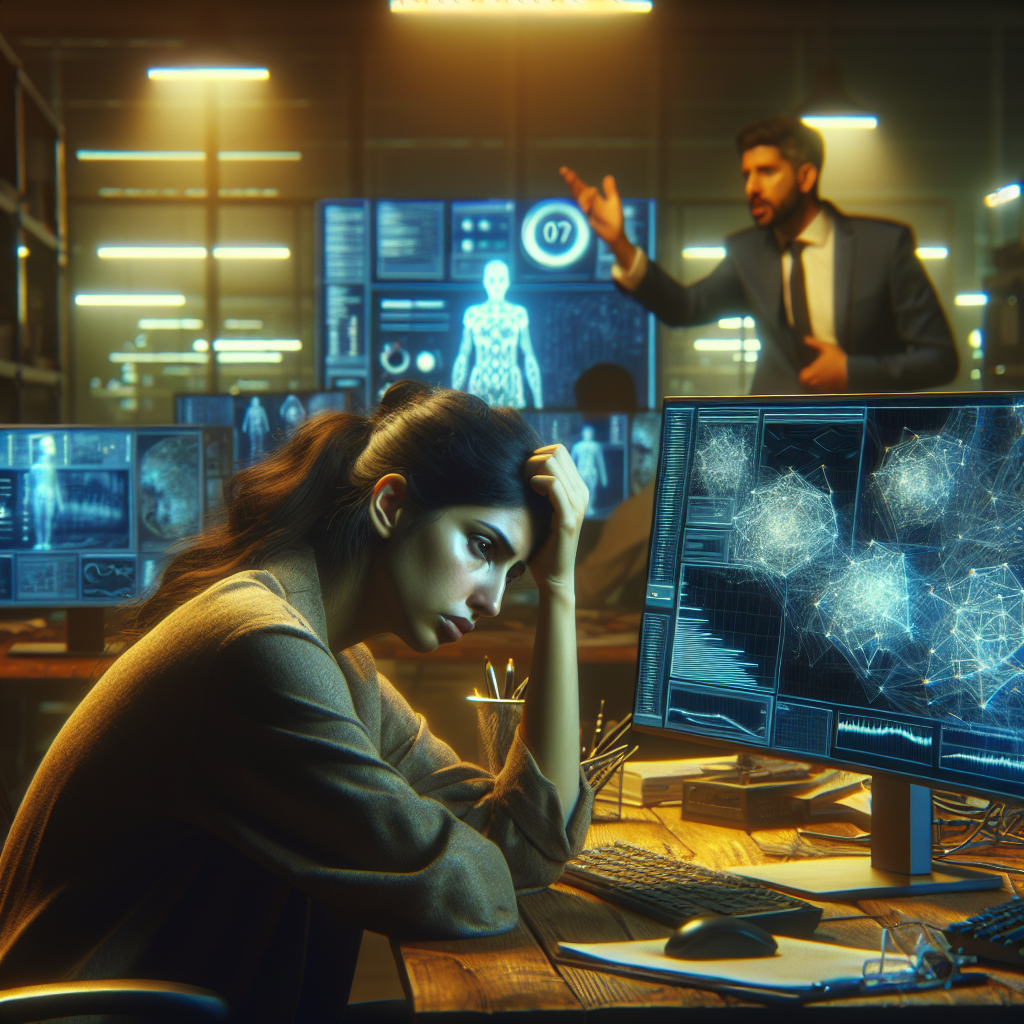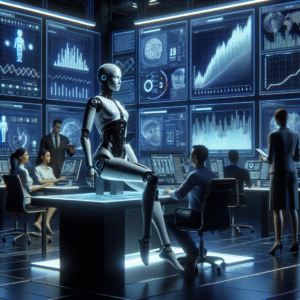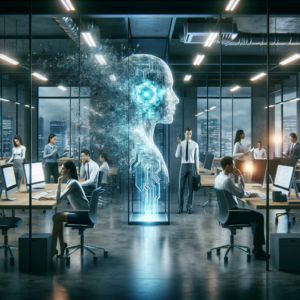Game Developers Are Getting Fed Up With Their Bosses’ AI Initiatives
In recent years, the gaming industry has been undergoing a remarkable transformation, largely driven by the rapid advancement of artificial intelligence (AI) technologies. While many developers are excited about the potential these technologies bring, there is a growing sense of frustration among game developers regarding the AI initiatives being pushed by their upper management. This article delves into the underlying issues that are fueling this discontent and explores the implications for the future of game development.
The Promise and Perils of AI in Gaming
Artificial intelligence has been a buzzword in the gaming industry for quite some time. From creating more realistic non-player characters (NPCs) to enhancing procedural content generation, AI holds the promise of revolutionizing how games are designed and experienced. Innovative companies have successfully integrated AI into various elements of game development, including testing, balancing, and even creating unique narratives.
However, this excitement can quickly turn into skepticism when developers feel that the push for AI is driven more by corporate aspirations than genuine innovation. Many creators express concern that management’s focus on AI initiatives often overlooks the artistic and creative aspects of game design, leading to a sense of alienation among the very people who make these games.
Understanding Developer Frustration
Game developers often find themselves at the forefront of technological change, but this environment can also be a double-edged sword. Here are some of the reasons why developers are growing increasingly frustrated with their employers’ AI initiatives:
1. Lack of Clarity and Direction
Many developers report feeling overwhelmed by the vague directives coming from upper management regarding AI. Instead of clear goals, many initiatives appear to be more about keeping up with trends rather than having a well-thought-out strategy. This lack of clarity can lead to confusion and a sense of futility among developers who want to focus on crafting innovative game experiences.
2. Fear of Job Displacement
One of the most pressing concerns surrounding the implementation of AI in gaming is the fear of job displacement. Developers worry that as AI takes on more tasks traditionally performed by humans—such as coding, art creation, and even game design—there may be fewer opportunities for human talent in the industry. This has led to a growing tension between embracing new technologies and safeguarding jobs.
3. Compromised Creative Integrity
Many game developers believe that the push for AI should not come at the expense of creative integrity. Some feel that using AI to automate certain aspects of game development results in a lack of authenticity in the final product. When AI is involved in the creative process, there is a risk that games may feel homogenized or formulaic, stripping away the unique qualities that make them truly special.
The Impact on Studio Culture
As frustration mounts over AI initiatives, the culture within game studios is also experiencing a shift. Developers who once thrived in collaborative and creatively driven environments are now facing pressures that prioritize efficiency and profitability. This change in focus can lead to a toxic work atmosphere, where creativity is stifled, and employees feel like cogs in a machine rather than valued artists.
1. Increased Burnout
The emphasis on AI can also contribute to increased burnout among developers. In their quest to stay ahead of the competition, many studios are pressuring their teams to implement AI solutions rapidly. This often means longer hours and unrealistic deadlines, leaving developers feeling exhausted and undervalued. The industry’s notorious work culture can be exacerbated by the demands of integrating new technologies, ultimately harming the projects and the people working on them.
2. Talent Retention Challenges
As frustration with AI initiatives grows, studios may face challenges in retaining top talent. Skilled developers who feel disenfranchised by their employers may seek opportunities elsewhere, where their creativity is valued and nurtured. This constant turnover can disrupt development cycles and ultimately harm a studio’s reputation in the industry.
Finding a Balance: The Future of AI in Gaming
Despite the challenges presented by AI initiatives, it’s essential to recognize that the technology also holds vast potential for improving the gaming experience. The key lies in finding a balance between leveraging AI’s capabilities while maintaining the essential human touch that defines great games.
1. Emphasizing Collaboration
One way to achieve this balance is by fostering collaboration between AI and human developers. Rather than viewing AI as a replacement for human creativity, studios can encourage teams to use AI as a tool that complements their skill sets. AI can be employed to handle repetitive tasks, freeing developers to focus on the creative aspects of game design, resulting in innovative and engaging experiences.
2. Clear Communication and Involvement
To address the growing discontent surrounding AI initiatives, studio leadership must prioritize clear communication and involve developers in the decision-making process. By fostering open dialogue about the potential and limitations of AI, teams can better understand how these technologies can be integrated into their workflows without compromising their artistic vision.
3. Supporting Professional Development
Finally, studios should invest in training and resources that help developers improve their understanding of AI technologies. By equipping employees with the skills and knowledge needed to navigate this changing landscape, studios can empower their teams to embrace AI as an opportunity for growth rather than a threat.
Conclusion
The gaming industry is at a crossroads, with artificial intelligence offering both exciting possibilities and significant challenges. While many developers are passionate about the potential of AI, the increasing frustration with management-driven initiatives cannot be ignored. By prioritizing collaboration, clear communication, and professional development, studios can harness the power of AI while preserving the creativity and integrity that make gaming a unique and vibrant art form. Ultimately, the success of AI in gaming will depend on the ability of studios to strike the right balance between technological advancement and the human touch that defines great games.



